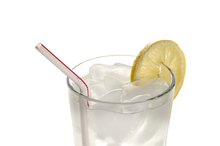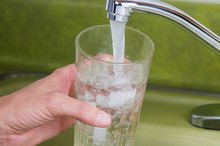How to Tell If Your Water Is Too Soft
Water hardness is a difficult item to measure, especially in the case of soft water. Water in the extreme of the soft spectrum has pros and cons 1. Most water sources in homes are a happy medium of softness 1. When your water becomes too soft, it lacks the natural minerals that are regularly present and can be difficult to drink, but can be extremely beneficial for cleaning and other household tasks.
Determining Extreme Water Softness
Taste it. It is the minerals in water that give it its distinctive taste, and extremely soft water has few minerals present. In essence, it is distilled water. It will have the distinctly flat taste of distilled water and will likely be unpleasant to drink depending on your preferred taste.
How Long Will Drinking Water Keep?
Learn More
Test it. There are testing kits that will measure the various minerals in your water. If the kits shows you have very few minerals, then your water may be too soft. If there is a high salt content, then it could be from your water softener 1. Softeners use chloride to remove the minerals from the water, and if the salt content is high, then it may be removing too many of the minerals.
Check your faucets. One of the negatives of having minerals in your water is they will begin to leave deposits on your faucets over time. Even water with normal levels of minerals will cause this problem eventually. If you have used the same water source for years and there is no deposits or staining on your faucets, then you can have extremely soft water. Soft water can cause water-using appliances to last 30 percent longer.
How to Remove Rust From Drinking Water
Learn More
Lather up. The minerals in the water can inhibit lathering of soap and other cleaning products. If your soap lathers easily or if the soap is too sudsy, then your water could be very soft. This is beneficial in that you cut down the costs of cleaning supplies because they last longer, according to doityourself.com.
- It is the minerals in water that give it its distinctive taste, and extremely soft water has few minerals present.
- Softeners use chloride to remove the minerals from the water, and if the salt content is high, then it may be removing too many of the minerals.
Related Articles
References
- DO It Yourself.com: Hard versus soft water
- Ohashi Y, Sakai K, Hase H, Joki N. Dry weight targeting: The art and science of conventional hemodialysis. Semin Dial. 2018;31(6):551-556. doi:10.1111/sdi.12721
- Beverages, water, tap, drinking. FoodData Central. U.S. Department of Agriculture. Published April 1, 2019.
- Dietary reference intakes for water, potassium, sodium, chloride, and sulfate. National Academies Press, 2005.
- Jéquier E, Constant F. Water as an essential nutrient: The physiological basis of hydration. Eur J Clin Nutr. 2010;64(2):115-23. doi:10.1038/ejcn.2009.111
- Popkin BM, D'Anci KE, Rosenberg IH. Water, hydration, and health. Nutr Rev. 2010;68(8):439-4358. doi:10.1111/j.1753-4887.2010.00304.x
- Adan A. Cognitive performance and dehydration. J Am Coll Nutr. 2012;31(2):71-8. doi:10.1080/07315724.2012.10720011
- Dennis EA, Dengo AL, Comber DL, et al. Water consumption increases weight loss during a hypocaloric diet intervention in middle-aged and older adults. Obesity (Silver Spring). 2010;18(2):300-307. doi:10.1038/oby.2009.235
- National Institutes of Health Genetic and Rare Diseases Information Center. Aquagenic urticaria. Updated June 20, 2016.
- Centers for Disease Control and Prevention. Well testing. Updated April 10, 2009.
Writer Bio
Brock Cooper attended Illinois Wesleyan University in Bloomington, Ill. He was a reporter for seven years with a daily in Illinois before branching out into marketing and media relations. He has experience in writing everything from press releases to features on a variety of subjects and forums. His work can be seen in NewsTribune newspaper, Chicago Parent magazine and several websites.







